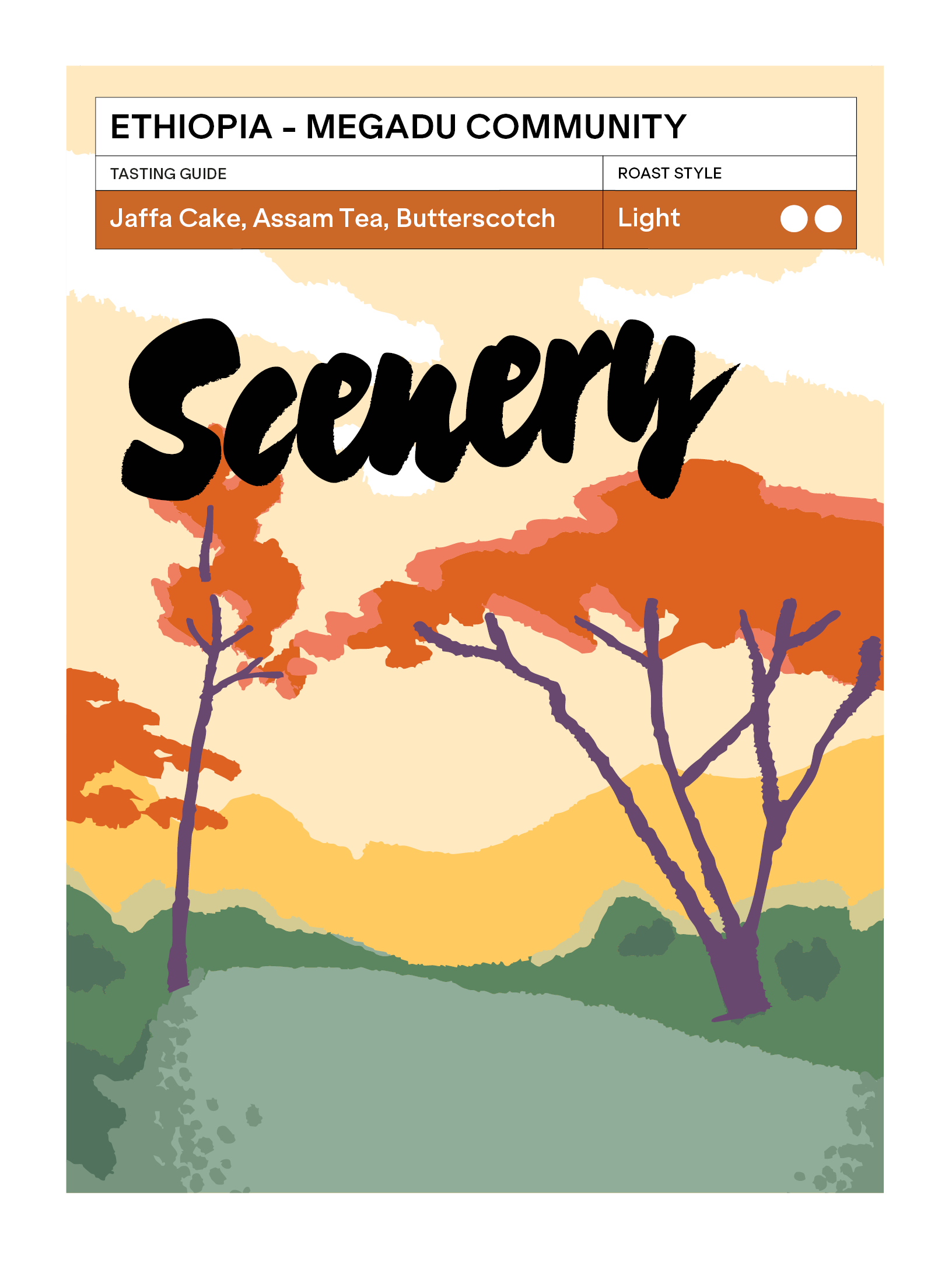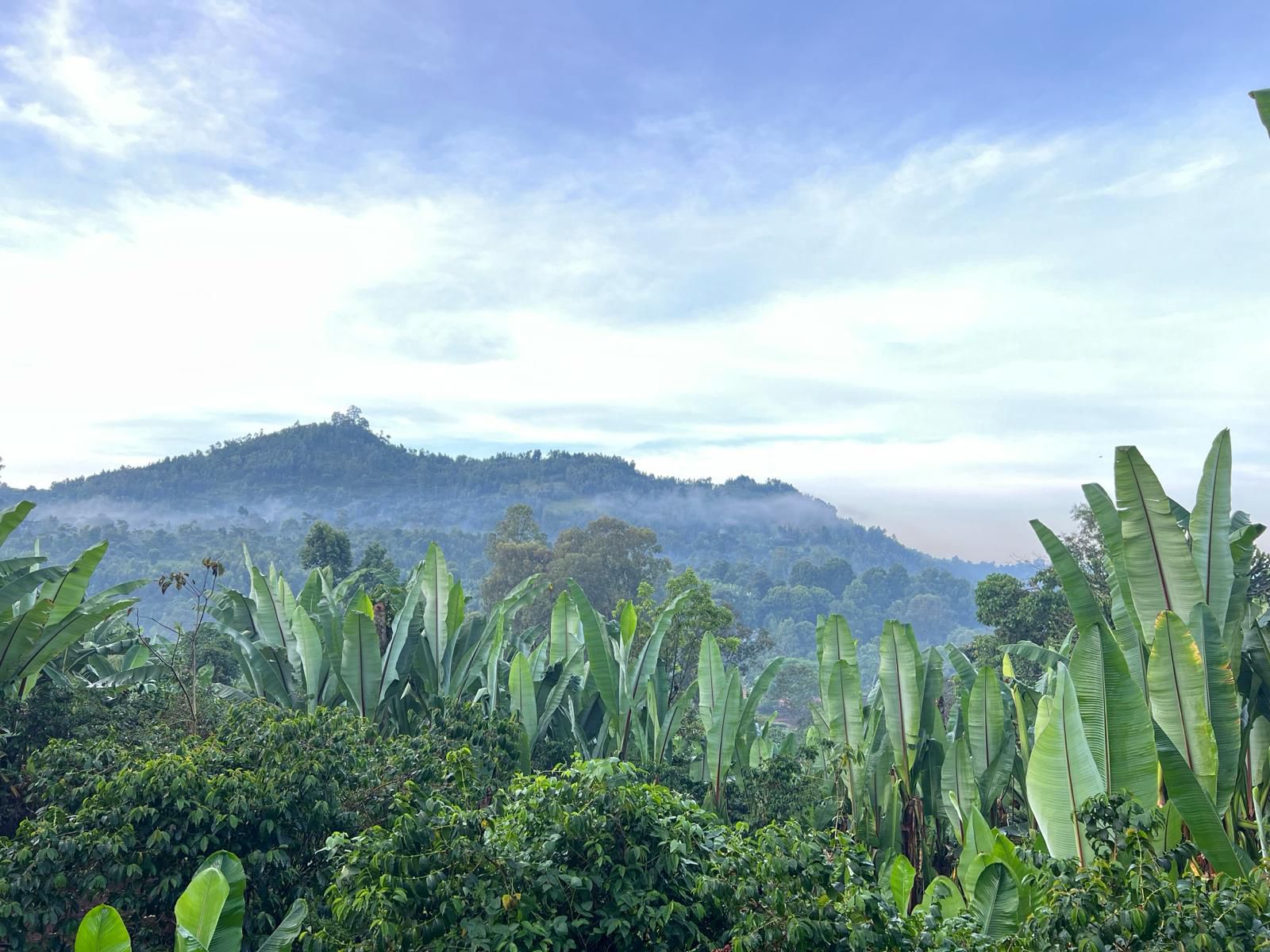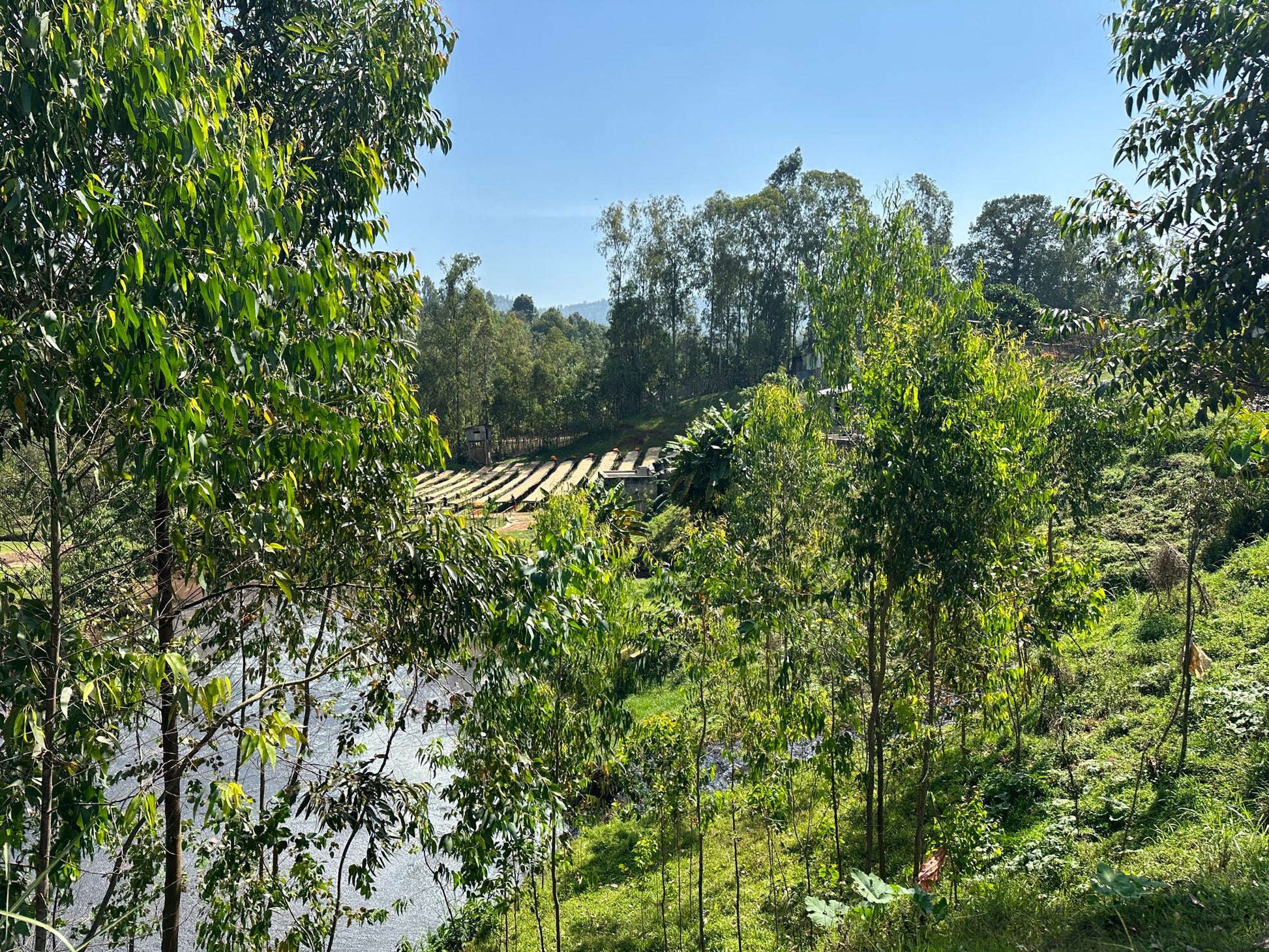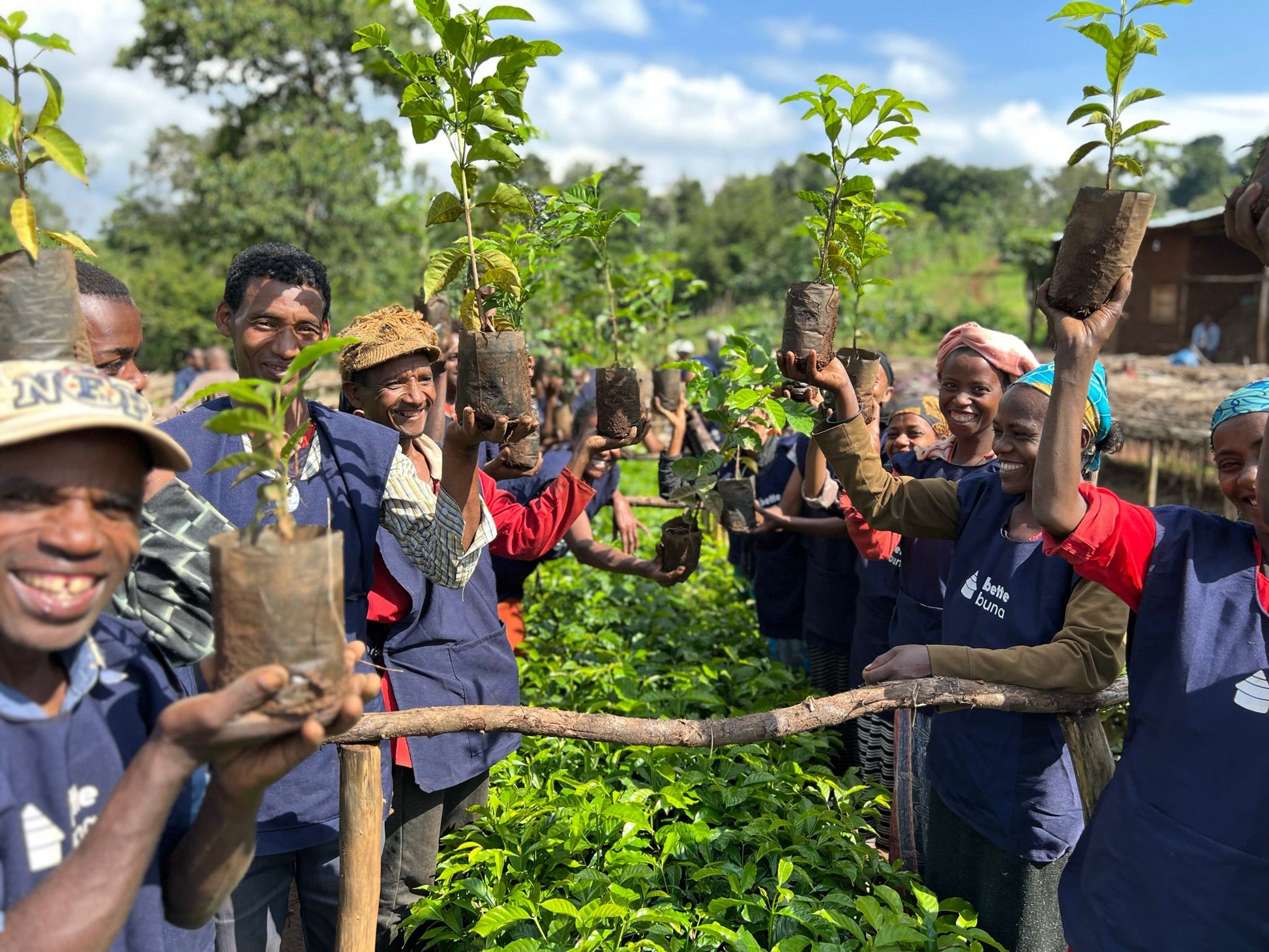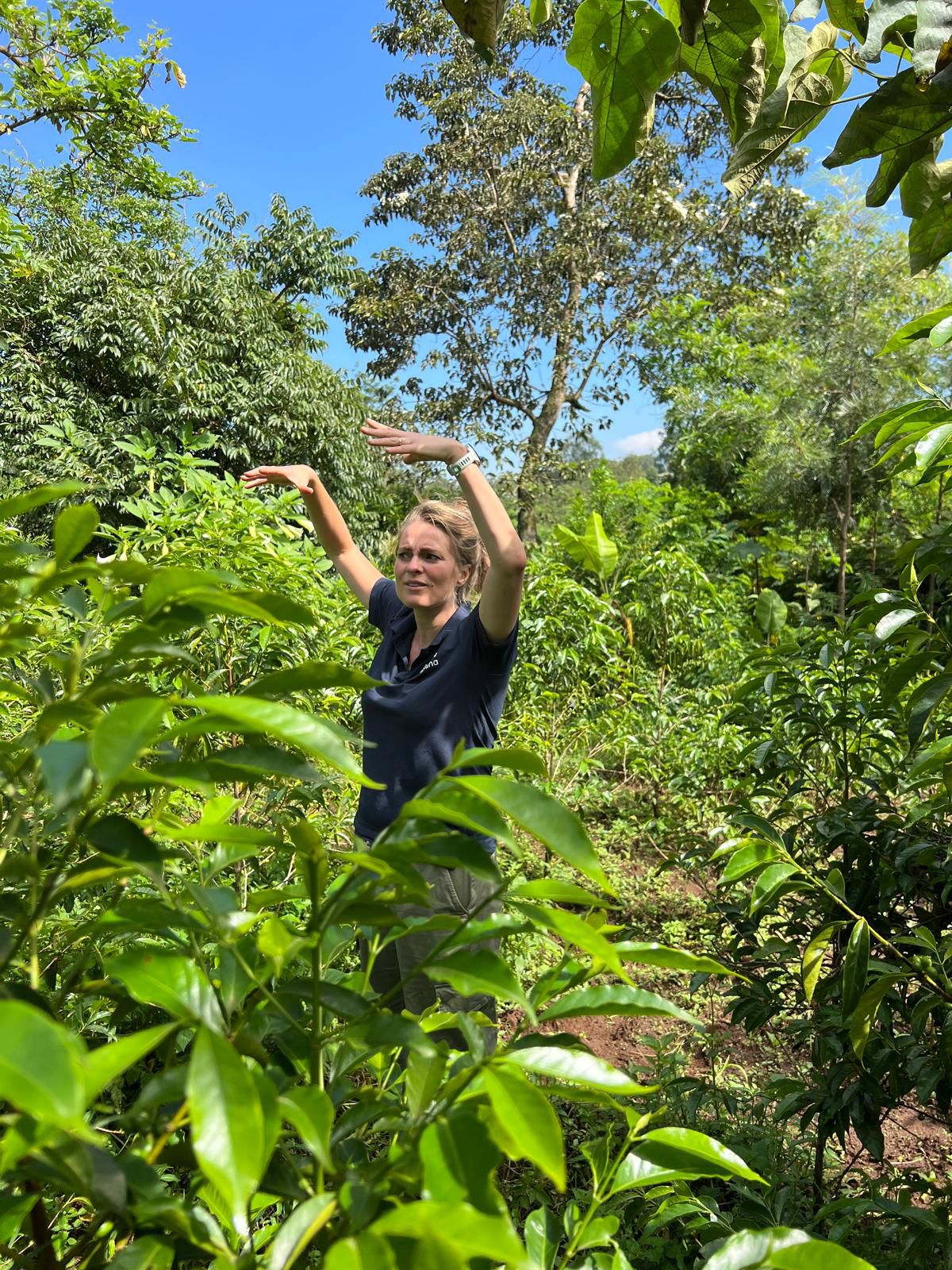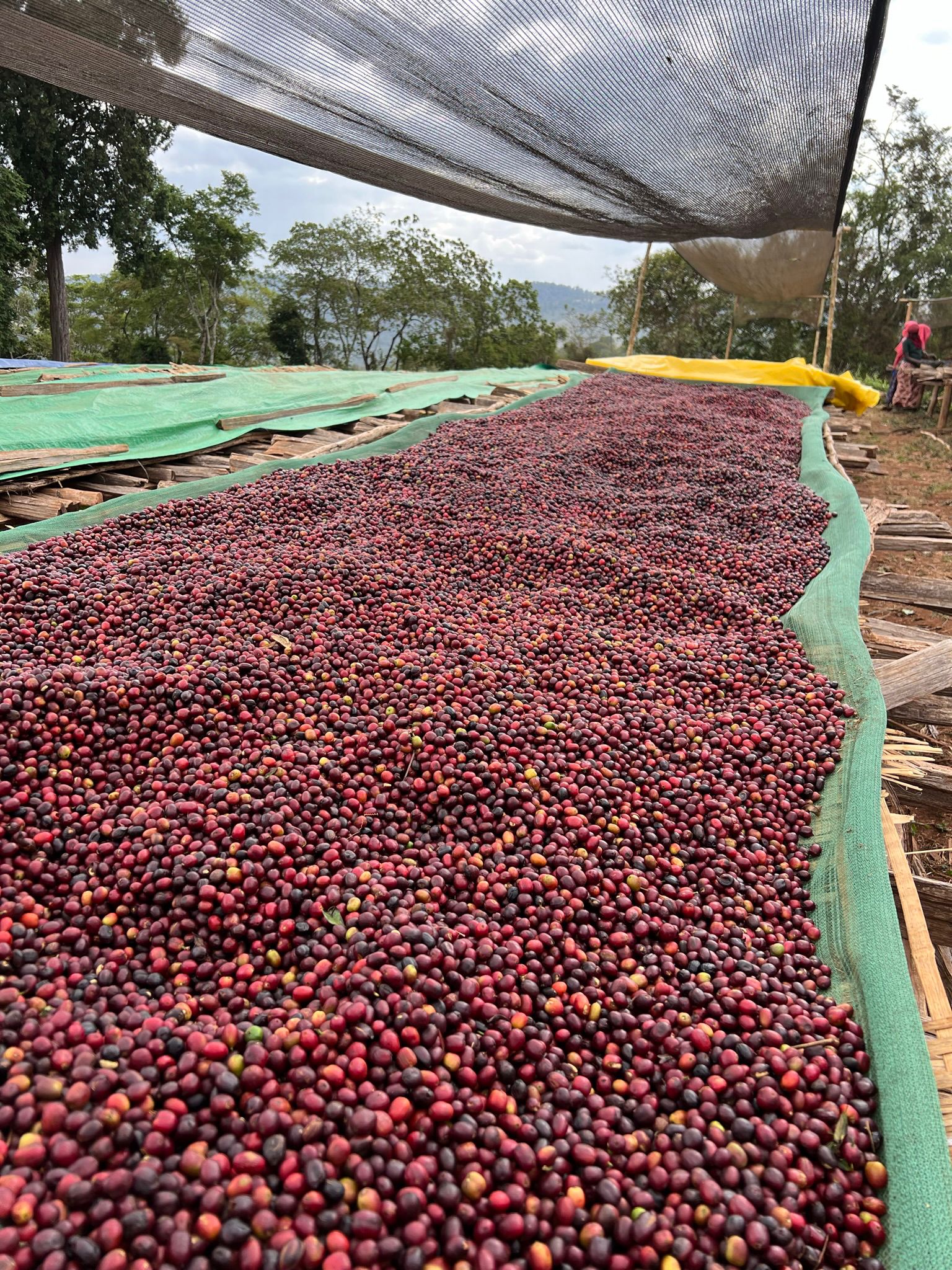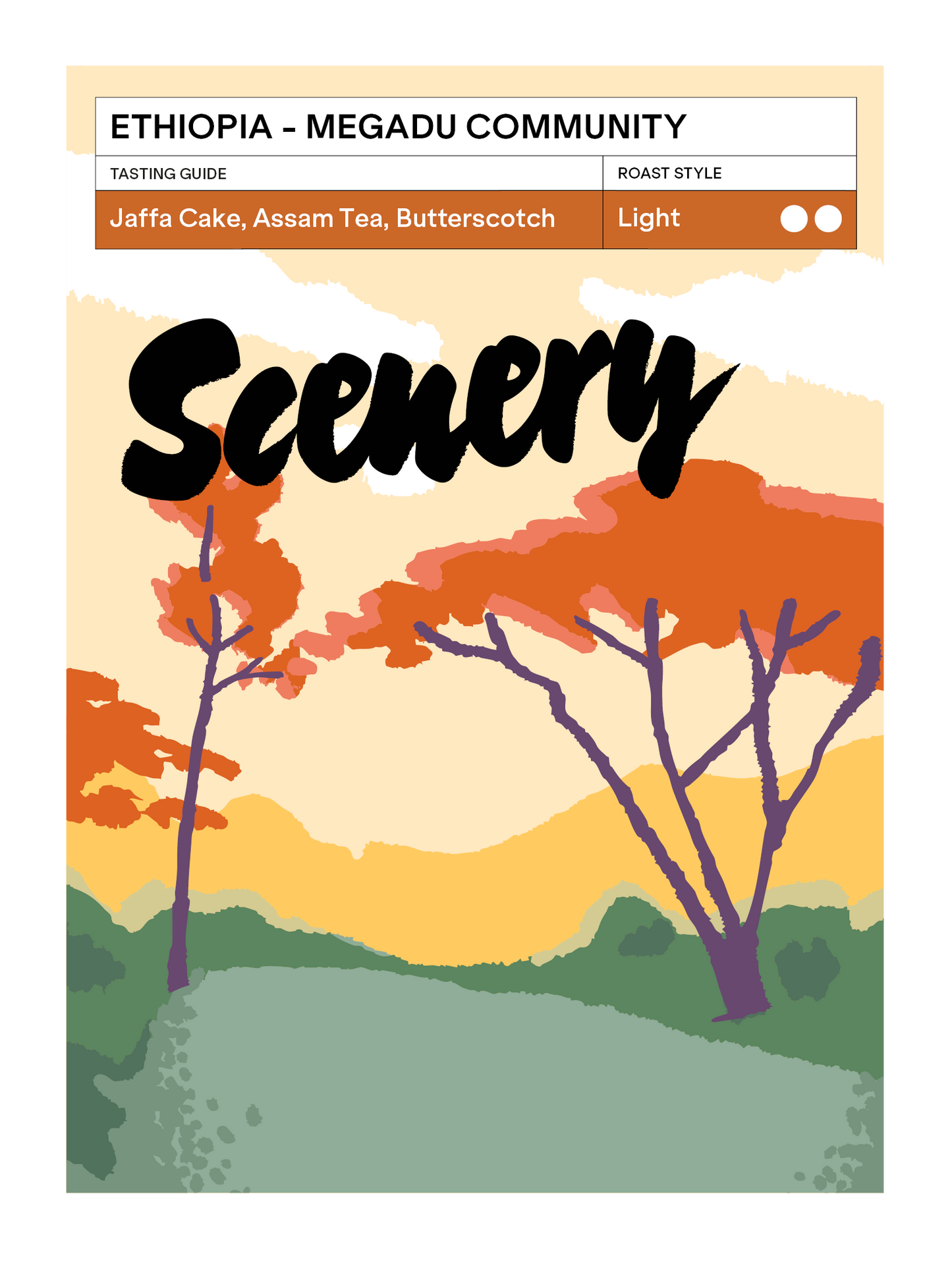
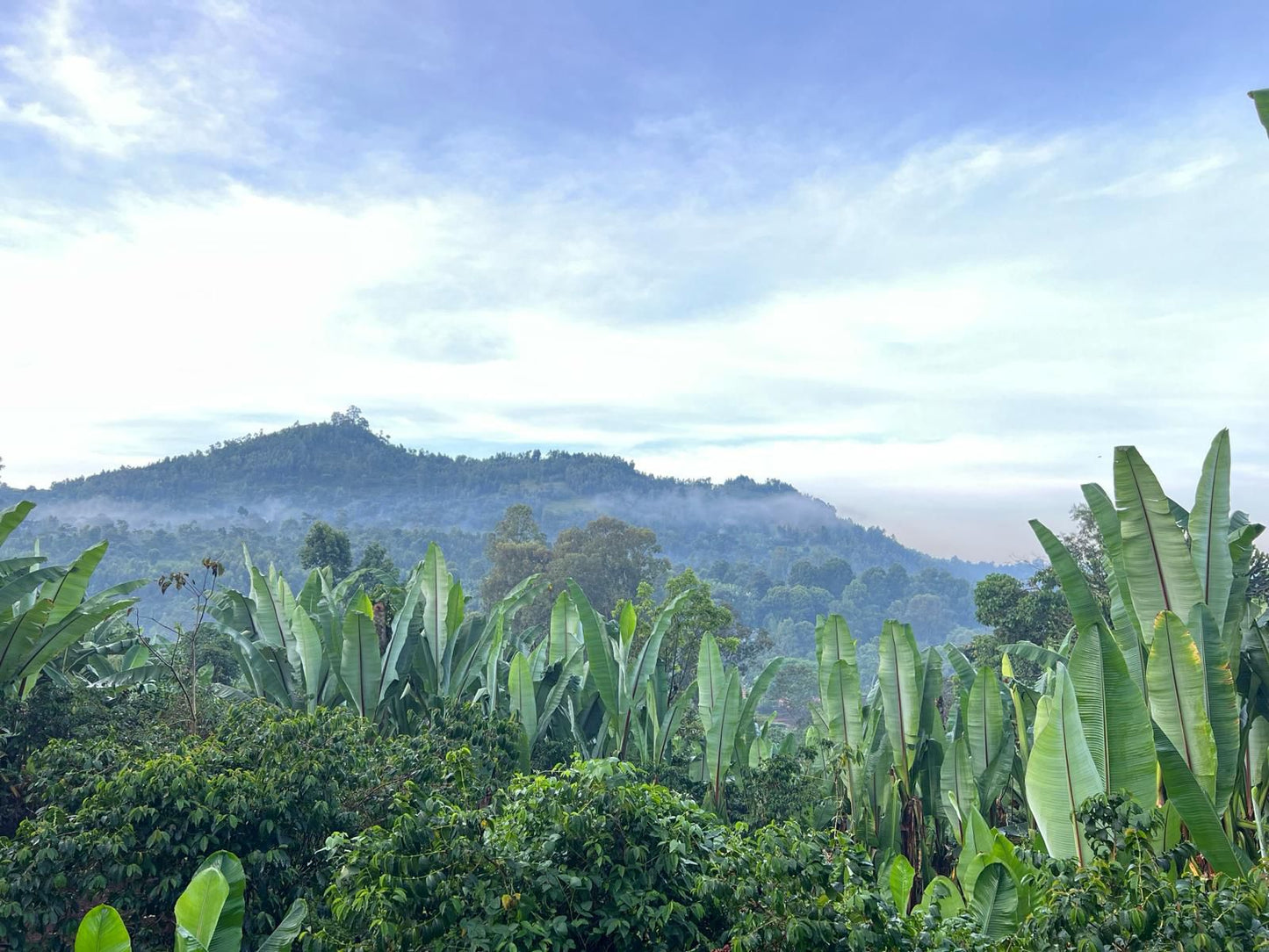
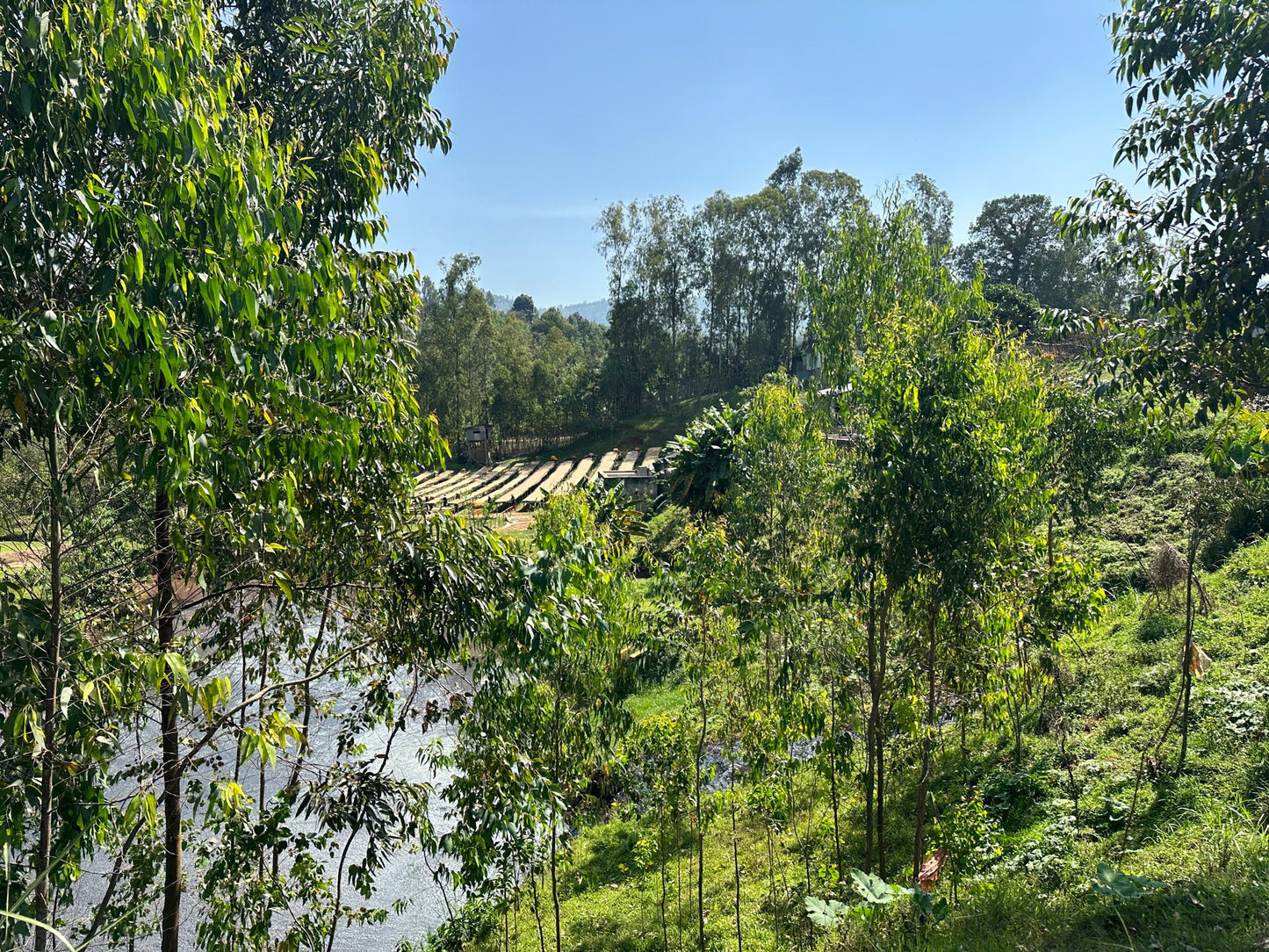
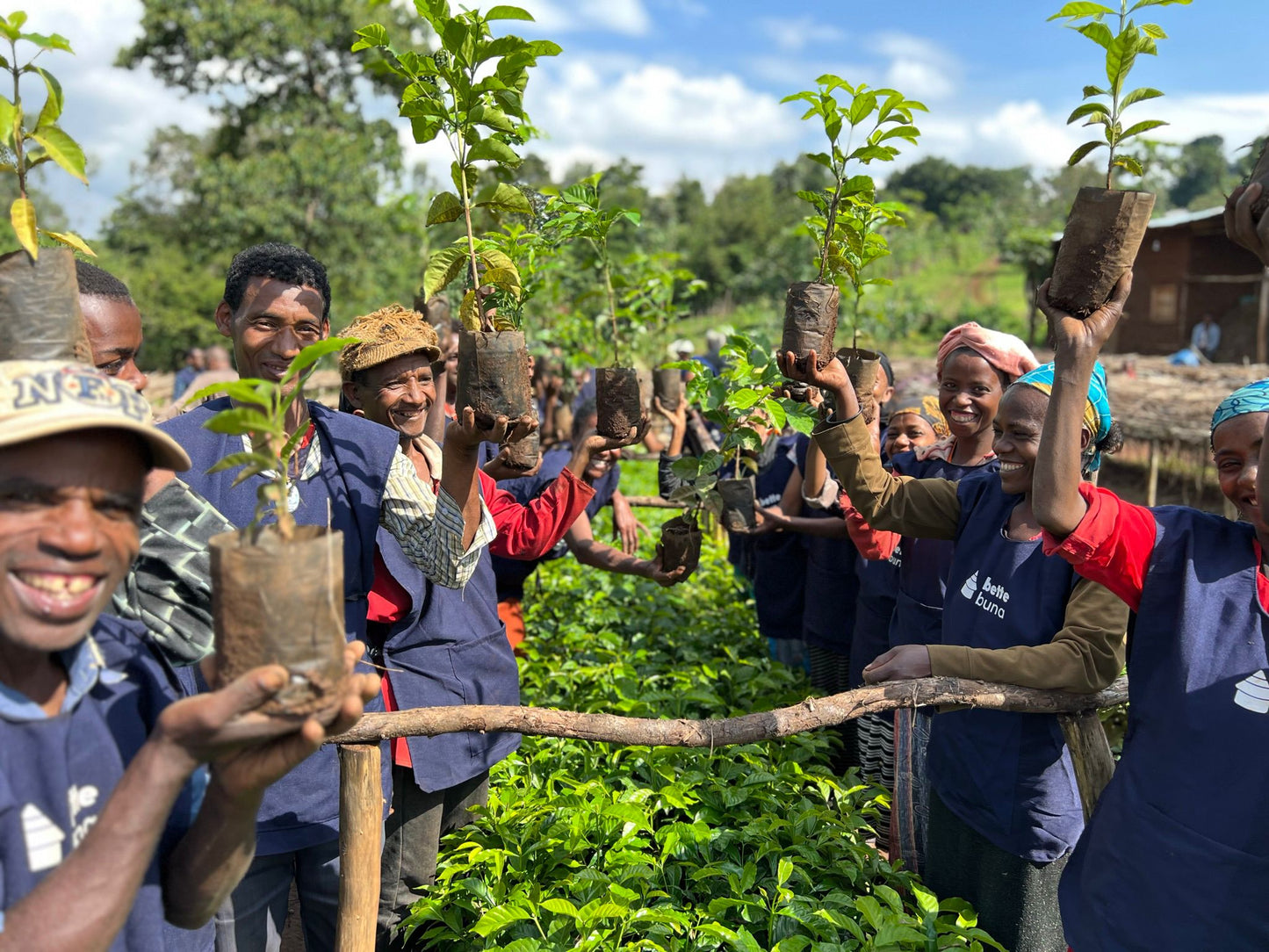
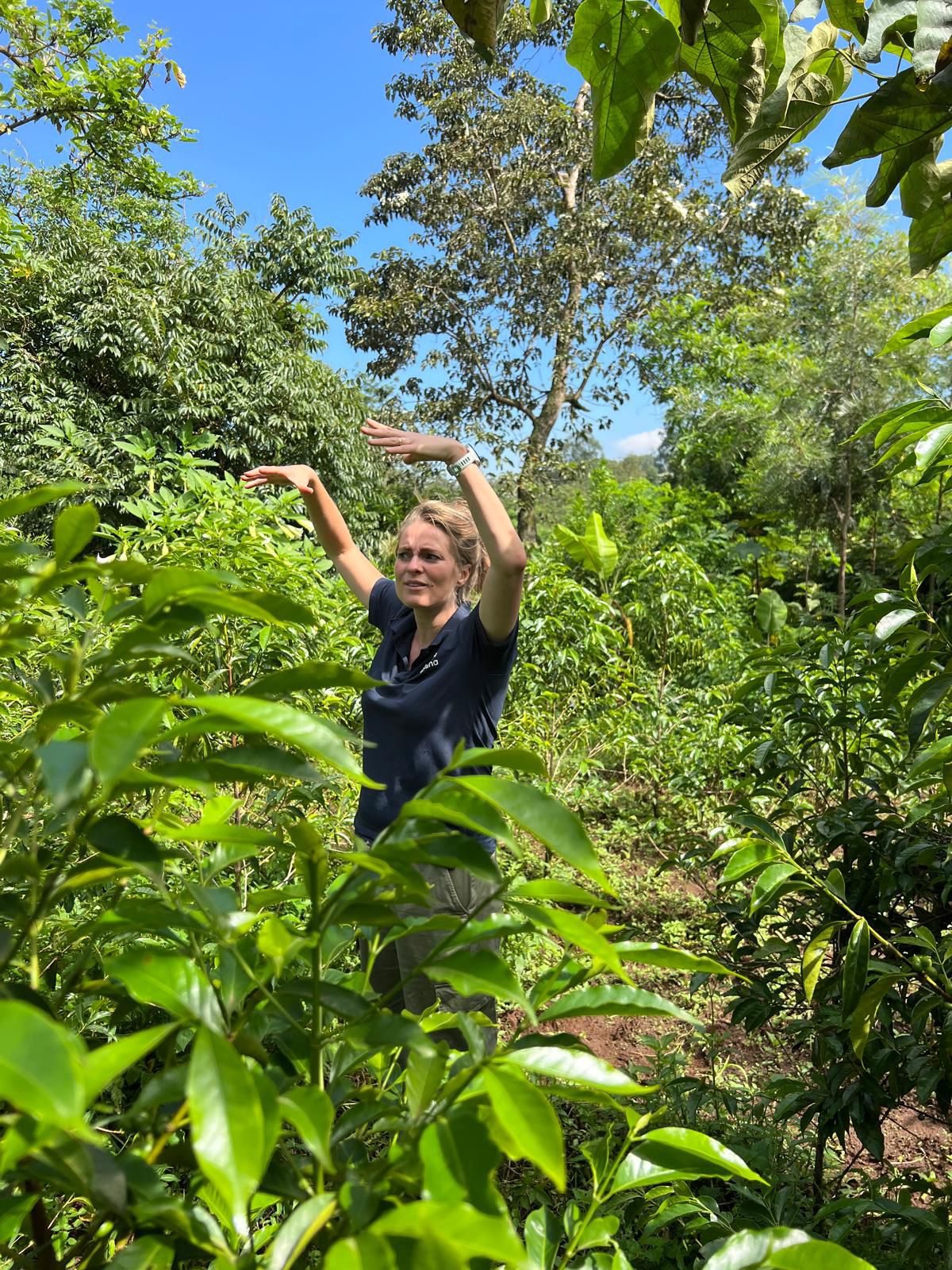
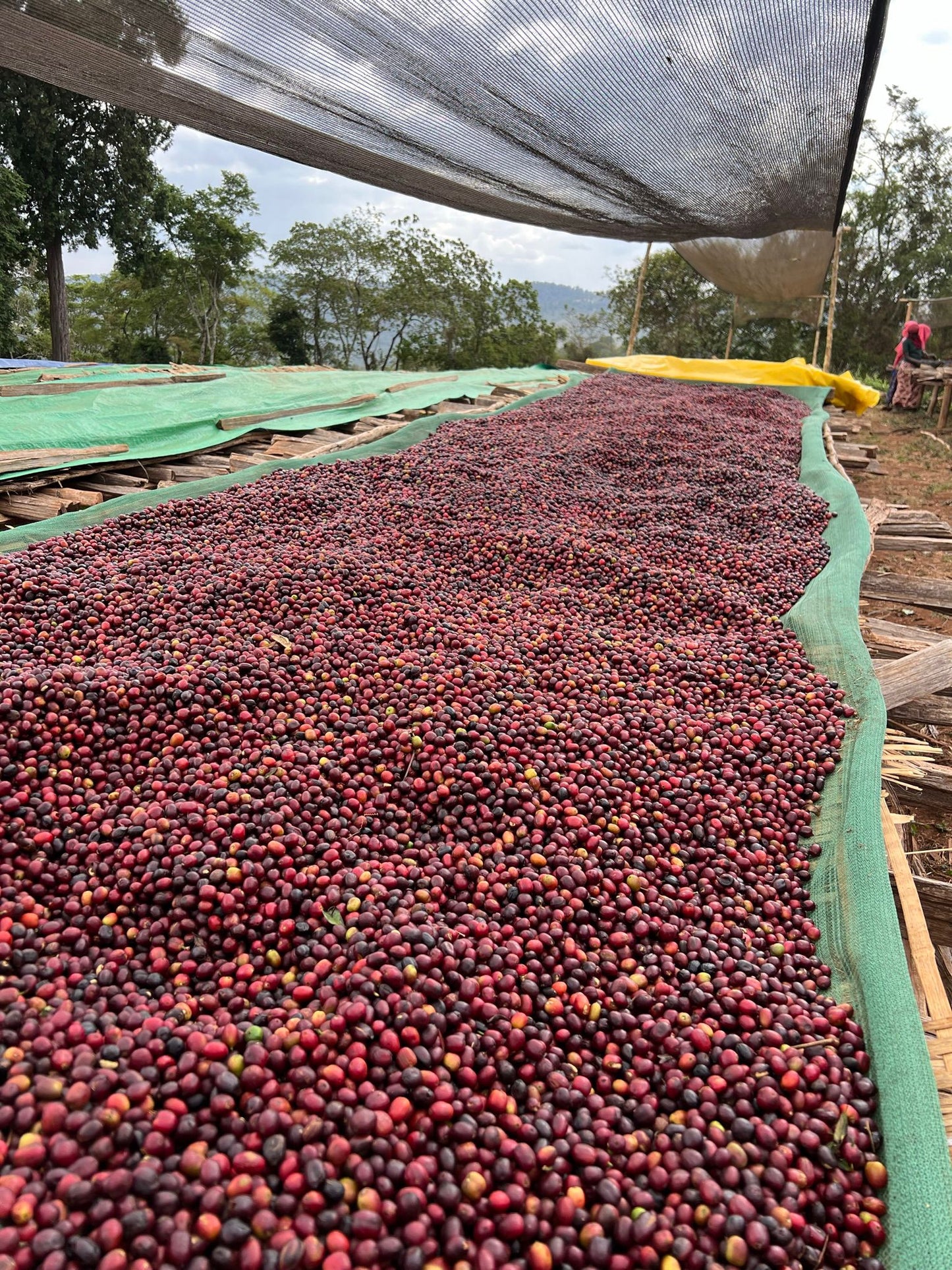
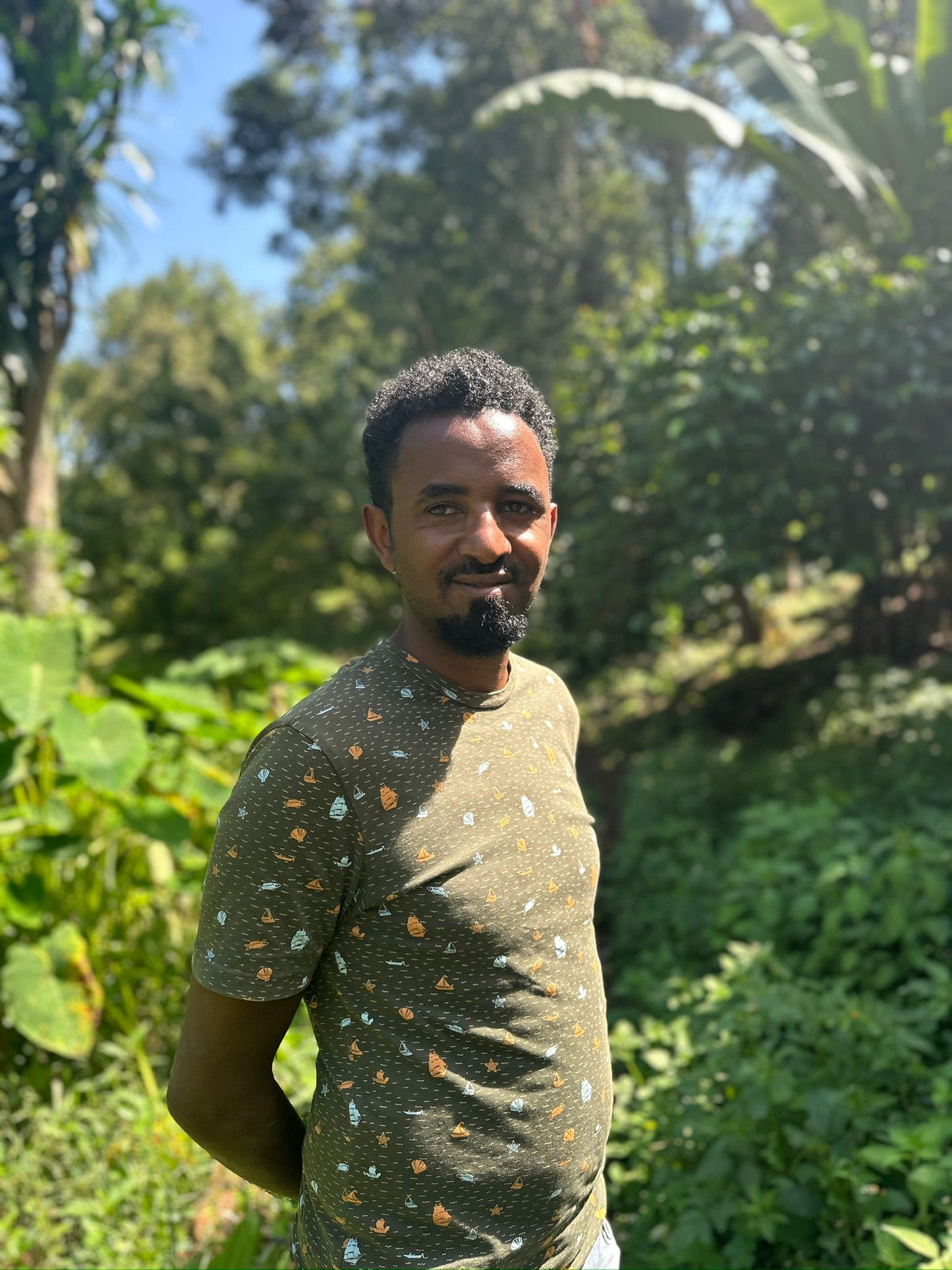
Brew Guide:
Best Brewed with: Filter/Espresso
Light-Medium Roaster Influence (House/Omni style): Ethiopian naturals would typically be very high acid when roasted with our typical style - to tamp things down, we're roasting slightly and longer (especially at the end of the roast) to bring more brown sugar and cooked fruits, alongside increased body. Definitely more developed
Best Rested: 2-3 weeks
Filter: 62g/L, 96°C when fresh but when well rested you can go down to 92-93°C
Espresso: 18g/48g/25-30s. Touch too much roast influence to soup, could be at turbo
We’re tasting: Aromas of orange peel, caramel, black tea, and roasted berries. In the cup it's the orange & milk chocolate cakey flavours akin to Jaffa cakes, with hints of freeze dried berries. As it cools, the malty and robust sweetness of assam tea, alongside butterscotch.
Traceability
Country of Origin: |
Ethiopia |
Region: |
Megadu, Shakisso Woreda, Guji |
Producer: |
Dawit & Hester Syoum-Westerveld, Gash Saffey, Gash Duba, Sentayehu, Hassan, Duba Yachisse, Debela |
Station: |
Bette Buna Megadu |
Variety: |
Wild Guji Megadu (a local landrace), JARC 74112/74158 |
Elevation: |
2000 -2200 MASL |
Process: |
Traditional Natural: Cherries picked and placed on raised beds at each farm with continual hand sorting. Dried over 20-25 days, before bagging and amalgamating at the Bette Buna Megadu site for 8 weeks reposado. During this period, lots are QC'd and built into larger Community blends. Lots dry milled on-site before an initial hand-sort to remove defects, before being driven to the Gelan dry mill for final export cleaning, grading, and density/optical sorting. |
Import Partner: |
Direct with Bette Buna (facilitated via Falcon) |
Harvest |
Crop 24/25 Arrived UK: 14/07/25; Second year working with Bette Buna |
The Story
When we set out to source a house filter, we're typically looking for a coffee that has a less hectic cup profile - more comforting, classic flavours, typically traditional processing. We focus on looking for lots that have impact projects at origin improving producer livelihoods. That is not us claiming that we are actually effecting that change, as oft the claim is made in this industry - it is the growers, exporters and importers who have the volume, expertise and boots on the grounds to do so. What we as a buyer provide is a market demand for these projects - all the impact work in the world is for naught if the coffee doesn't sell, especially in a world with shinier micro/nano lots compared to the comforting classics.
These coffees are selected knowing that they will benefit from a touch of extra time in the roaster, super soluble, lower acidity compared to our typical range, but still clean in the style we like to produce. We run these coffees as house filter in our café (as well as supplying to other cafés) with the intention they should be a great entry transition to speciality. No gatekeeping here - if someone wants to add milk and sugar to enjoy this, be our guest - we completed the value chain between producer and you helping support the projects we buy in.
This lot is a super cool project from our pals at Bette Buna. Typically in Ethiopia, smallholder outgrowers deliver cherry to a central washing station and are paid for the wet cherry, with the majority of the value addition occurring during processing. This system has benefits in the economies of scale and the ability to have centralised quality methods. But these very same farmers will already be drying their own coffee for personal consumption, and so have the ability to dry on site.
Bette Buna has the central mission of improving smallholder livelihoods for the farmers they work with, so this year they have undertaken a project to allow producers to dry their own coffee on-farm, providing training and raised beds. The ability to add value at the farm level - gaining increased prices for delivering dry cherry over wet is a huge shift - we can look at the difference that same journey has had for Colombian farmers & wet vs dry parchment, it's been a truly transformational change in who benefits in the value chain.
Bette Buna has aggregated these lots and have completed meticulous QC throughout the season, building this community project lot to produce this easy-drinking G2 natural, with the QC shared with the farmers to help improve their processing as they moved through multiple rounds of picking.
While we've bought a large clip to run in Facility later in the year, it's landed vibrant and full of energy, so we've decided on an early release as house filter
- Choosing a selection results in a full page refresh.
- Opens in a new window.

